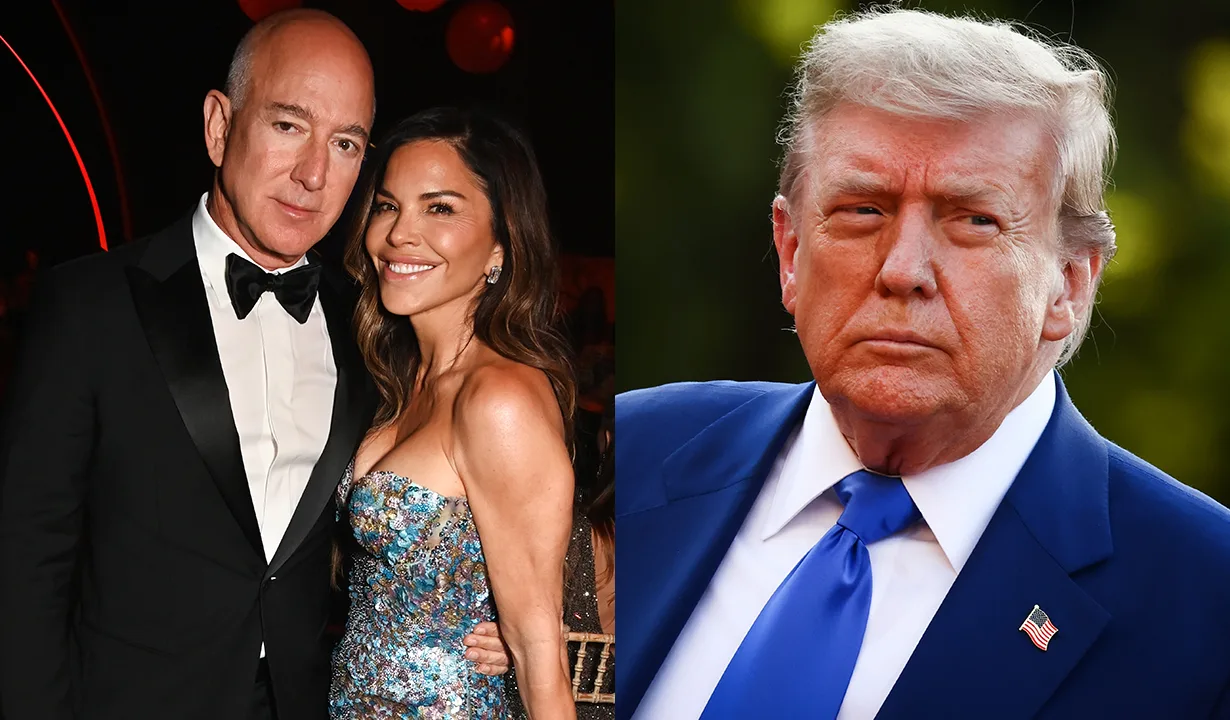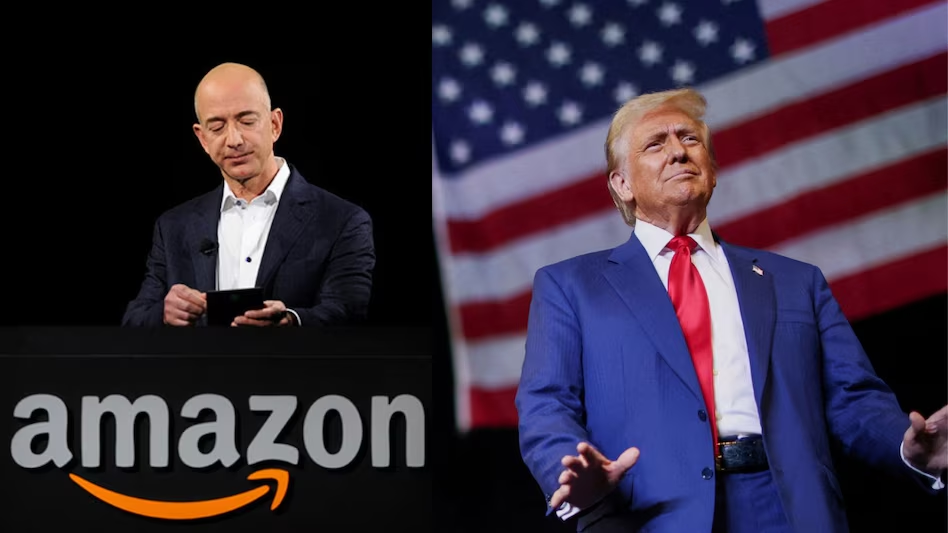The relationship between former adversaries Donald Trump and Jeff Bezos took center stage in late April 2025, as mounting tensions over tariff policies threatened to overshadow Amazon’s highly anticipated first-quarter earnings report. What began as a contentious dispute over the e-commerce giant’s alleged plans to display tariff costs on product listings quickly transformed into a diplomatic phone call that would set the tone for one of the most scrutinized earnings announcements in recent memory.
The controversy erupted when Punchbowl News reported that Amazon was considering showing customers exactly how much Trump’s aggressive tariffs were adding to product prices, particularly on its discount platform, Amazon Haul. This transparency initiative immediately drew the ire of the White House, with Press Secretary Karoline Leavitt condemning the move as a “hostile and political act.” The administration’s swift response highlighted the sensitive nature of tariff discussions, especially as Trump’s policies impose a staggering 145% tariff on Chinese imports and 10% on goods from other nations.
The stakes couldn’t have been higher for Amazon, which was already grappling with significant market pressures. The company’s stock had plummeted 17% year-to-date, underperforming compared to many peers, while analysts predicted the slowest revenue growth rate since 2022. With approximately 50% of Amazon’s third-party sellers based in China, the tariff implications posed substantial risks to the company’s vast retail operations and profit margins. This backdrop of financial uncertainty made the timing of the White House confrontation particularly precarious for the Seattle-based tech giant.
The Presidential Intervention
Trump’s direct involvement in the Amazon controversy demonstrated the administration’s determination to control the narrative surrounding tariff policies. Multiple sources confirmed that the president personally called Bezos on Tuesday morning to express his displeasure with the reported tariff display plans. The conversation marked a significant moment in the evolving relationship between two figures who had previously engaged in public feuds, with Trump once derisively labeling Bezos as “Jeff Bozo.”
Following the call, Trump’s tone shifted dramatically. Speaking to reporters outside the White House, the president praised Bezos as “very nice” and “terrific,” emphasizing that the Amazon founder “solved the problem very quickly” and “did the right thing.” This public endorsement represented a stark contrast to their historically contentious relationship, particularly given Trump’s previous criticisms of Bezos over his ownership of the Washington Post.
Amazon’s Strategic Response

Amazon moved swiftly to defuse the situation, issuing clarifications that the tariff display concept was never approved for implementation. The company emphasized that any consideration of showing import charges was limited to Amazon Haul, its discount platform competing with Chinese retailers like Temu, rather than the main Amazon website. This strategic clarification helped contain the controversy while maintaining the company’s relationship with the administration.
Earnings Impact and Market Reaction
When Amazon released its first-quarter results on May 1, 2025, the company exceeded analyst expectations with revenues of $155.7 billion and earnings per share of $1.59. However, the earnings call was overshadowed by concerns about tariff impacts, with the company specifically citing “tariff and trade policy” changes as factors complicating future guidance. Despite beating estimates, Amazon’s stock fell more than 4% in after-hours trading due to disappointing second-quarter projections.
The Trump-Bezos call ultimately demonstrated the delicate balance between corporate transparency and political sensitivities in an era of aggressive trade policies, setting important precedents for how major corporations navigate government relations during earnings season.

